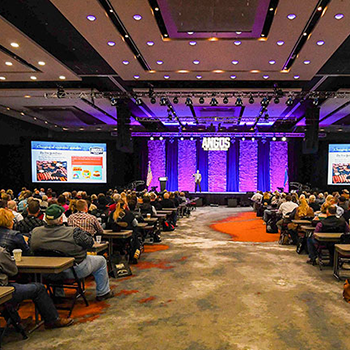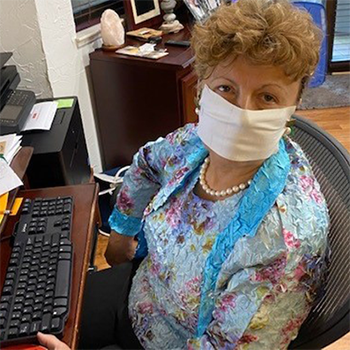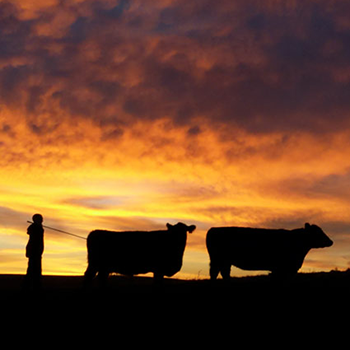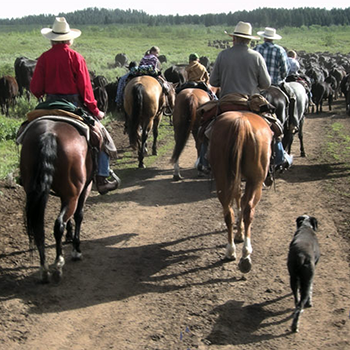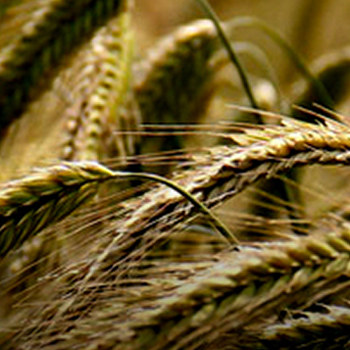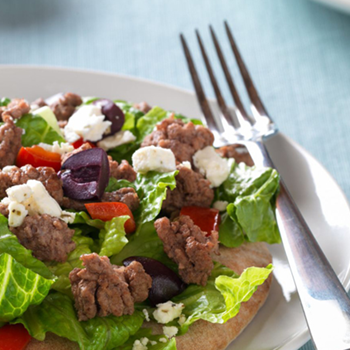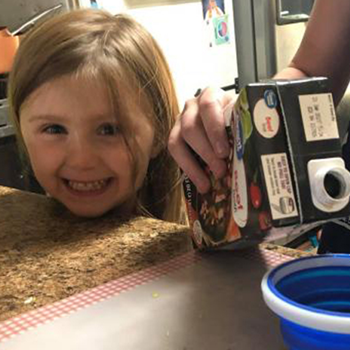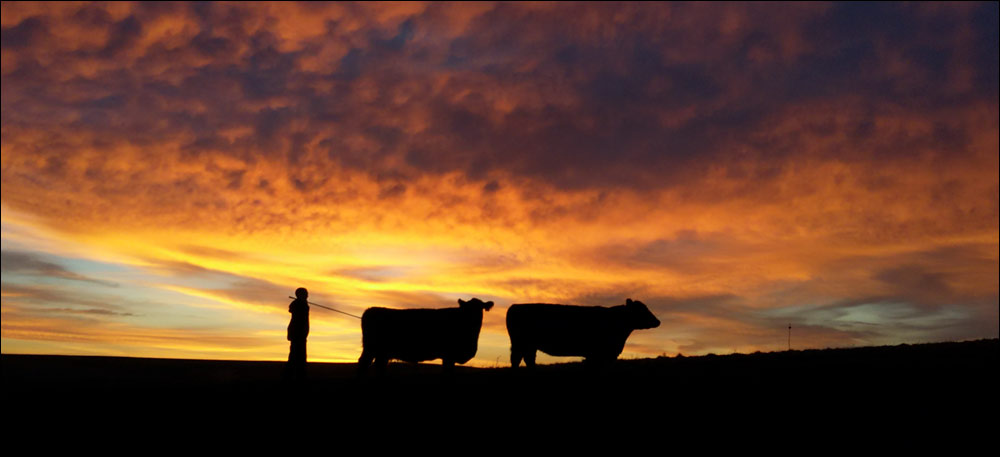
Chasing Unicorns
Ditch the bogus expectations of finding balance with this simple mindset change.
When someone asks you how you are, how often is the reply, “Oh, you know, busy”? Why is “busy” so glorified? What is “busy” doing to our mental health?
As mental health rightly gets more limelight with all of the natural stressors of agriculture, plus anxiety caused by COVID-19 and trade wars, it seems sought-after balance is simply a mythical unicorn.
While the elusive balance might be fictitious, mindfulness is obtainable. Mindfulness acknowledges that in the work-life dynamic, each piece can be prioritized in its own time by being absolutely in the moment.
Katie Dodd, a licensed 20-year educator and certified mindfulness instructor, says: “It’s helped me be right here, right now. When you’re in the present moment, you tend to be happier. You’re more engaged. You’re more aware.
“Being with your kids and being at work, we can add this third level of not actually being anywhere — worrying about the future or ruminating about the past,” she explains. With mindfulness, “I don’t lose as many moments to that past or future.”
However, she admits, it can be easier said than done. Human minds wander. With practice, though, she says she can realize when her mind is drifting and pull it back to task more quickly.
In the end, this snap back to attention has increased her productivity, and she doesn’t beat herself up for her mind wandering in the first place. Life is hard enough without adding negative thoughts about yourself, as many perfectionists are prone to do.
In the cattle world
As a media sales representative for multiple farm publications with frequent travel, a partner in the family farm with a growing freezer-beef business, a mom of three children, a wife, and a woman with her own interests, Leah Mindemann could certainly get caught up in being busy.
She and her husband, Andy, operate their cow-calf operation near Watertown, Wis., in close proximity to his parents and his twin brother’s family. They all operate as separate entities, but they are close enough to support each other and work together when necessary.
Their three children — Maggie, 13; Gabe, 11; and Paige, 8 — are showing cattle now, and that has changed some of their business priorities.
“We’re just getting into the fun years of showing cattle with them and watching them do this,” Mindemann explains. “We are pretty excited to be able to have them keep our best heifers now. In order to do that, Andy and I have really focused on growing our freezer-beef business.
“Probably a half a dozen years ago, we sold six to eight steers,” she continues. “This year we’ll market over 30 feedlot steers, and we’re trying to grow that even more. That’s been a real shift in our program for us, even though at the end of the day what we’re really after are those high-quality Angus females. As they say, the best way to judge a bull is to take a look at its mama. So along with that then comes some pretty outstanding bulls.”
While true free time is limited due to showing cattle, the children also enjoy various interests, like sports and cooking. Mindemann’s job requires her to travel about 40% of the time. How do they juggle everything?
 |
Leah Mindemann (center) says there will always be work guilt or parent guilt, but by being in the moment, she is able to be more productive and enjoy more time with (back row) Andy, Maggie, (front row, from left) Gabe and Paige. [Photo by Leah Mindemann] |
“First and foremost, Andy and I are very lucky that we are each other’s biggest fans,” she says. “It’s really hard to walk out the door when I’m leaving for a trip, and he always tells me, ‘Hey, I’ve got this. When you leave, I actually exist to them.’ That’s been very encouraging to me dealing with the mom-guilt side of things.”
Friends and family provide plenty of help when needed. She also says they’ve had some mature conversations with their children, so they understand both parents may not be able to attend every practice or game due to work travel, calving or haying.
Parental expectations have changed quickly within just one generation. Mindemann recalls that her parents were fine with her playing softball if she could ride her bike to practices. Because of this, managing expectations is a big part of managing life.
Mindemann tries to focus “on the moment” when at work and when at home.
She keeps all of her family scheduling in her phone so she can adjust work things around them when possible. She knows she also needs time to herself, so she is fairly religious about exercising every morning at the local gym.
For a while, with COVID-19 precautions, classes halted. She enjoyed being home to help Andy with morning chores, but also realized she still needed her personal time. There’s a sign at the gym that says, “Sweat is the fountain of youth,” and she laughingly agrees.
At work, she makes a weekly status report for herself on Fridays to take stock of projects accomplished and projects in progress. She can gather herself on Sunday with this and feel ready for the week.
She’s worked in sales for 18 years and says it’s all about finding mutual solutions for problems both parties face. Relationships are key in sales, and her eye is on the future of the ag industry.
“As someone who’s raising the fifth generation to be involved in the beef business, I am personally invested in those advertising folks making good decisions for their clients so that my kids have a better industry to work in when they’re my age,” she says.
In sales, however, she admits it’s hard to leave work at work, because you can always try to sell more. Yet, she realizes her children will never be this age again and, in the end, how do we want to be remembered? She says that while she loves her job and what she does, she wants to be remembered for her helpfulness and kindness.
There will always be parent guilt or work guilt at times, she says. Worrying if she’s parenting right keeps her up at night.
The extra time at home lately has given her more time to observe her children, she says. “It has been pleasant to see during this time at home these last three months that I think they’re pretty outstanding people.”
Practice makes perfect
Mindfulness is a practice, and some things will work more for different people. Like Mindemann, having some personal time in the morning can set up the day for success, Dodd says. She has found that starting and ending the day with something she wants to do helps her stay focused during the day.
A common mindfulness mantra — “What I cannot control, I must let go” — is especially apt for those in agriculture. Stockmanship focuses on keeping cattle thinking instead of focused on survival, and the same can be said in regard to the stockmen themselves.
Taking a few deep breaths helps regulate our bodies and brings our minds back to the prefrontal cortex — the thinking part of our brain, Dodd says. That helps get back to the problem-solving side instead of the worrying side to tackle the next thing.
That next thing doesn’t mean chasing the elusive balance unicorn. It’s being mindful about your task at hand and keeping your priorities in check.
Editor's note: Lead photo by Erica Driscoll from the 2018 NJAA/Angus Journal Photo Contest.
